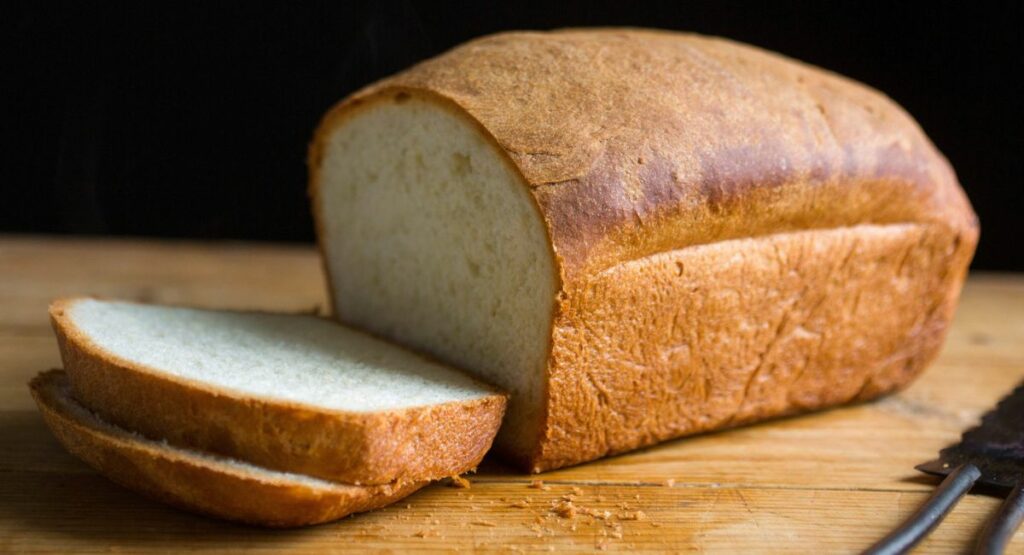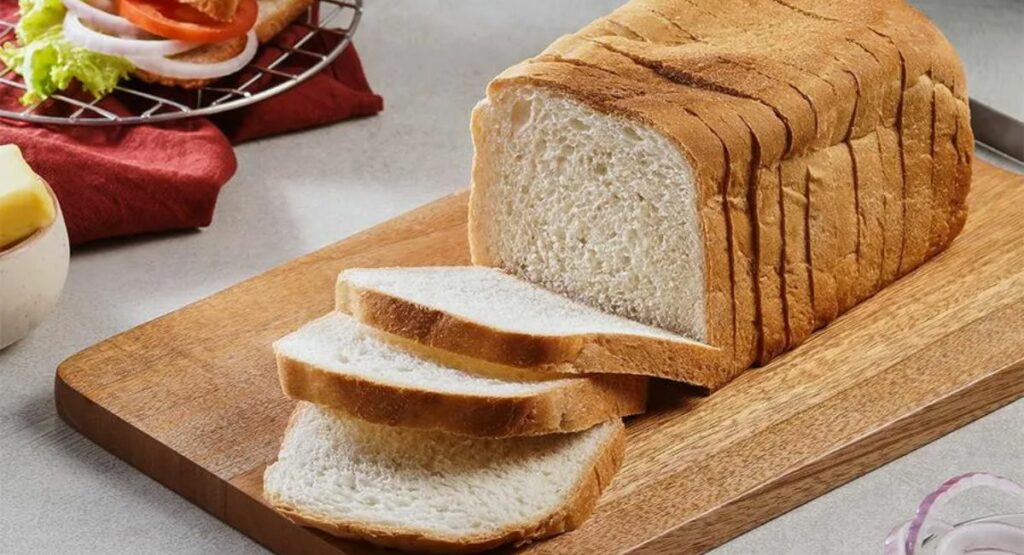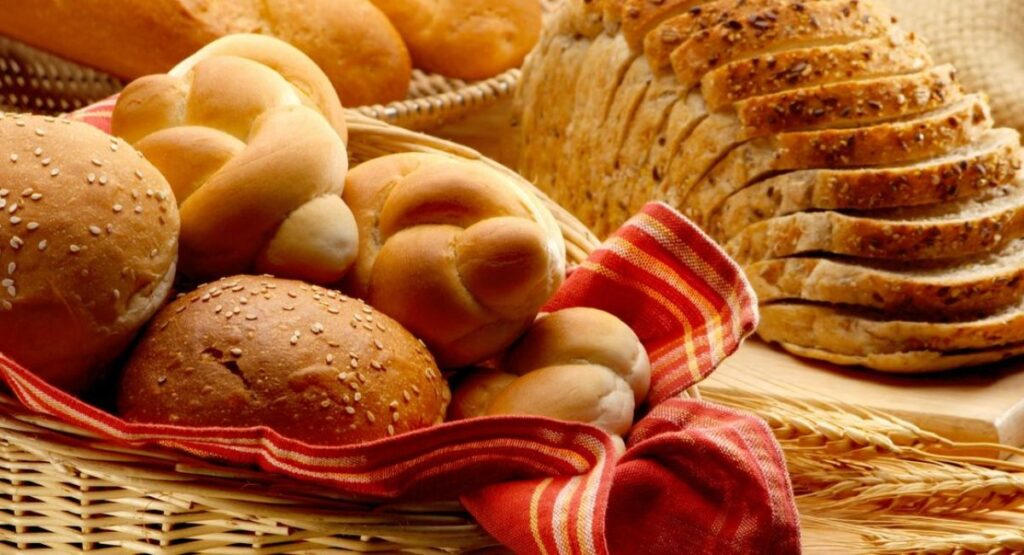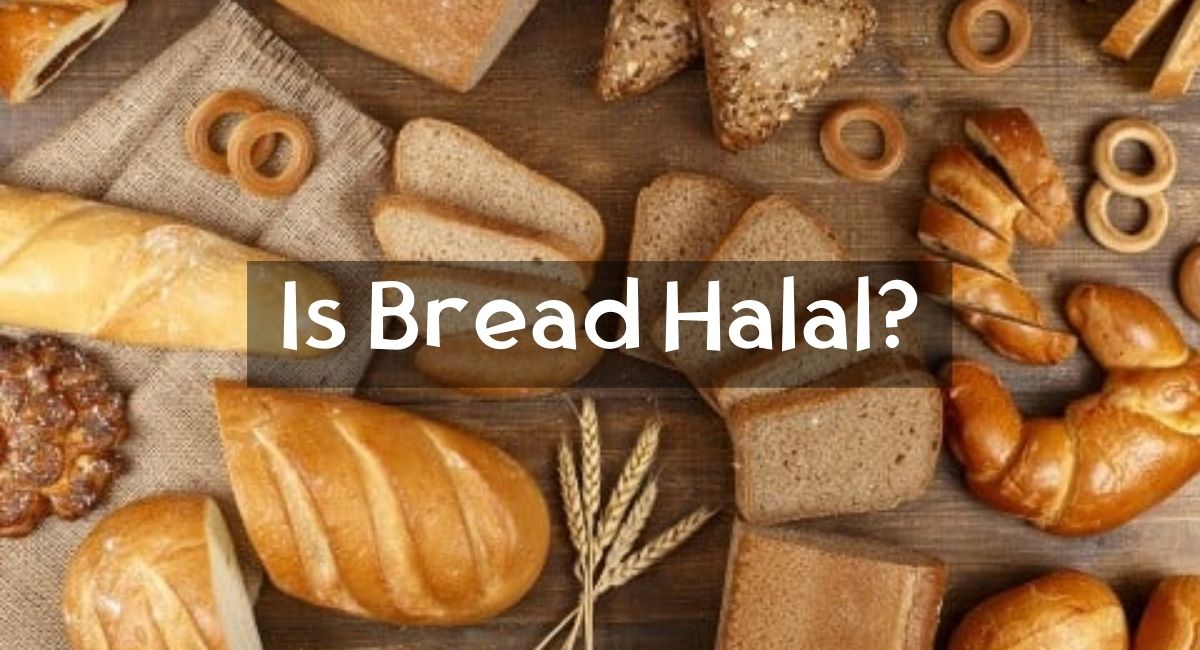Yes, Bread is considered halal. Bread ingredients like flour, water, yeast, and salt are generally safe. But you’ve got to be careful because some things can make the bread haram. Things like lard (made from pigs), alcohol, or things from animals that aren’t prepared the right Islamic way can make the bread not good for Muslims
Bread is often a subject of debate when it comes to understanding Halal foods and eating issues. Is bread truly halal or not? This blog aims to answer this question by providing guidance and information on the various aspects of baking and consuming bread relevant to ascertaining its halal status. We will explore the ingredients used in bread, the rules of preparing and consuming it that must be followed to consume halal bread and more. By the end of this blog, you should better understand that is bread halal. Let’s get started!
About Bread

Bread is one of the oldest and most widely consumed foods in the world. It dates back to around 10,000 BC when early humans first began baking bread from a combination of ground grains and water. From then on, bread has been a staple food for many cultures around the globe.
Bread is typically made from wheat flour, water, yeast, and salt. As the dough ferments and bakes in an oven, it results in a delicious loaf of bread with a crispy crust on the outside and a soft interior. There are many varieties of bread, from white sandwich loaves to hearty artisanal sourdough.
Bread is packed with essential vitamins and minerals such as thiamin, niacin, folate, iron, selenium, and manganese. It is a good source of dietary fibre which helps to keep us full for longer periods of time. Additionally, bread can be a great resource of whole grains—which have been linked to heart health benefits—depending on the type of flour used.
What’s more, bread can be enjoyed in a variety of ways: you can have it as toast with butter and jam; turn it into a sandwich with your favourite fillings; or use it to make delicious French toast. There really is no wrong way to enjoy bread!
Overall, bread is a delicious, nutritious staple food that has been enjoyed around the world for centuries. Whether you are looking for a classic white loaf or an artisanal sourdough, there’s sure to be something out there that will satisfy your taste buds. So why not give it a try? We promise you won’t regret it!
Ingredients Used In Making Bread

Bread is a staple food around the world, and there are many different ingredients used to make it. Here is a detailed list of some common ingredients that are used in making bread:
- Flour – This is the main ingredient for most types of bread and can be made from wheat, rye, barley or other grains.
- Yeast – This is a type of fungus that helps to make bread rise and gives it its characteristic flavour. It can be added as instant dry yeast, or in the form of fresh baker’s yeast.
- Water – The amount of water used in making bread depends on the type and recipe, but it is a key part of the process.
- Salt – Salt helps balance out the sweetness in bread and can also help control the activity of the yeast. It is often added after kneading, to keep it from breaking down the gluten structure too much.
- Sugar or honey – This adds sweetness and helps activate the yeast. It can also be used to give the bread a golden brown crust.
- Butter or oil – This adds flavour and helps make the bread tender. It can also create a more crispy texture on the outside of the loaf.
- Eggs – Eggs are often added to enriched doughs, like challah or brioche, to add richness and structure.
- Milk or yogurt – These dairy products bring moisture and flavour to the dough, as well as nutrition. They can also be used in combination with other liquids like water or juice.
- Nuts, dried fruit or seeds – These are often added for flavour and texture. They can be chopped, ground or left whole for a variety of interesting effects in the finished bread.
- Herbs and spices – These are also added for flavour, either fresh or dried. Common additions include rosemary, thyme, oregano, garlic and onion powder.
These ingredients provide the building blocks for making different types of bread, from basic loaves to more complex recipes. With a bit of practice and experimentation, anyone can be a master baker!
By using these ingredients in combination with each other, home bakers can create delicious and unique loaves of bread that are sure to please family and friends. Bread made at home can also be healthier than store-bought alternatives, as they don’t contain preservatives or other unnecessary additives.
Are you a fan of sourdough bread but unsure about its Halal compatibility? We have all the answers you need! Our in-depth is Sourdough Bread halal article delves into the relationship between sourdough bread and Halal certification. Discover the traditional fermentation process involved in creating sourdough and how it aligns with Halal principles. We explore the ingredients, techniques, and considerations necessary for sourdough bread to meet Halal standards.
Bread And Halal Status In Islamic Dietary Laws

Bread is an important part of any diet and its status as being halal or permissible within Islamic dietary laws has been the subject of much debate. According to Islamic law, consuming food that is not considered ‘halal’ is prohibited, unless permitted by Allah (God). This means that all types of food must follow certain guidelines in order to be permissible and halal.
In regards to bread, there are a number of criteria that must be met for it to be considered ‘halal’. Firstly, one requirement is that the ingredients used must meet certain standards as set out by Islamic law. For example, any animal products such as lard or any type of fat should be avoided as these are not considered ‘halal’. Similarly, alcohol and certain other ingredients such as enzymes must also be avoided.
In addition to this, it is important that the bread itself is not contaminated with anything that would render it ‘haram’ (forbidden). This means that it is important to ensure that the bread is baked and stored correctly, as per Islamic law guidelines.
Furthermore, as with any food prepared for consumption in Islam, it must be blessed before eating. This blessing should be done by reciting a prayer known as ‘dua’ (supplication) which usually consists of asking Allah to make the food ‘halal’ and blessed before it is consumed. Therefore, bread can indeed be considered ‘halal’ in Islam as long as all of the above criteria are met.
The Quran states that-
Allah has allowed you to eat from whatever is on earth, provided it is halal and pure.
(Quran 2:168)
Allah has allowed you to eat from whatever is on earth, provided it is halal and pure” (Quran 2:168). This verse indicates that as long as the bread is prepared in accordance with the Islamic dietary laws, then it can be considered ‘halal’.
Overall, bread can be considered ‘halal’ in Islam provided all of the necessary criteria are met. It is important to ensure that the bread is prepared in accordance with Islamic dietary laws and that it is blessed before being consumed. With these simple steps, bread can be considered ‘halal’ in Islam and enjoyed by Muslims around the world.
Can Bread Be Haram?
Yes, bread can be haram for Muslims if it contains ingredients that are not permissible according to Islamic dietary guidelines. This includes ingredients like lard (pig fat), alcohol, or substances derived from animals that are not slaughtered in accordance with Islamic principles.
How Is Yeast Obtained?
Yeast is typically obtained from either a homebrew store or online. It comes in either dry or liquid forms and can be used for both brewing beer and making bread. For beer, the most common type of yeast used is Ale yeast, which is a strain of Saccharomyces cerevisiae.
This type of yeast produces esters and other flavour compounds that give beer its distinct taste. For bread making, a variety of yeasts can be used to enhance the flavour, texture, and rise of the dough. These include active dry yeast, instant yeast, and fresh yeast.
When using dry yeast, it should be rehydrated in warm water before being added to the other ingredients. Instant yeast, on the other hand, does not require rehydration and can be added directly to the flour. Fresh yeast is the least common form of yeast available for purchase. It must be kept refrigerated and has a relatively short shelf life so it should be used as soon as possible after being purchased.
No matter which form of yeast is used, it must be activated so that the activity of the yeast can begin. This usually involves proving or “proofing” the yeast by combining it with a warm liquid and sugar to feed the cells in order for them to activate. Once this has been done, the yeast can then be added to the other ingredients and the activity of fermentation can begin.
By understanding which type of yeast should be used for each application, as well as how to properly activate it, one can confidently use yeast in their baking and brewing projects with great results!
Is Yeast Used In Making Bread Halal?
The answer to this question is yes, yeast is generally considered halal and can be used in the making of bread. Yeast is a single-celled microorganism that feeds on sugars and produces carbon dioxide which causes dough to rise. This process has been used for centuries to make bread, beer, wine, and other leavened products.
Yeast is used in many food items, including bread, and it does not contain any animal ingredients or alcohol, so it can be considered halal. However, the use of yeast does require some consideration when preparing bread for religious observance. In Islamic countries, a lot of care must be taken to ensure that the bread is made according to halal principles.
This includes using pure and uncontaminated ingredients, such as natural yeast or vegetable-based alternatives like baking powder. It’s also important to check that any other ingredients added during bread preparation are certified as halal for use in food products.
It is also important to note that some debate exists among Islamic scholars regarding the use of yeast in bread preparation. Some believe that it is permissible, while others say that it may be considered haram (forbidden) due to the presence of alcohol produced from natural fermentation. However, most major halal certification authorities accept the use of yeast as long as no other non-halal ingredients are added during the bread-making process.
Overall, yeast is generally considered halal and can be used in the making of bread as long as it is prepared according to Islamic standards. Care should be taken to ensure that all ingredients are certified as halal for use in food products so that the final product adheres to religious dietary. By following these guidelines, you can help ensure that the bread products you make are compliant with Islamic dietary laws. To know more about the topic, read our is yeast halal guide.
Is Bread Halal?- Final Take
In conclusion, determining whether bread is halal or not depends on how it was prepared. If a variety of ingredients were used in the baking process that is considered to be Haram, then the bread would not be Halal. Additionally, if someone eats something that has been blessed by another person from a different faith than yours, then it would also be considered Haram.
Therefore, it is important to read the ingredients used in bread and source Halal-certified products when possible before consuming. Additionally, it is always recommended to perform ablution before eating any food item to ensure that it is Halal and permissible for consumption within Islamic teachings. By following these guidelines, one can ensure that they are consuming Halal-compliant products.
Frequently Asked Questions (FAQs)
Is Bread Vegan?
The answer to whether bread is vegan or not depends on the ingredients that are used. Traditional bread recipes typically call for four main ingredients: flour, water, yeast and salt. These ingredients are all vegan and therefore make the bread suitable for a vegan diet. However, many varieties of bread contain other ingredients that may not be considered vegan-friendly.
Is Bread Kosher?
The answer to this question depends on a few factors. First, bread must be made with kosher ingredients that have been certified as such by an authorized rabbinical organization or similar authority. Secondly, the process of making the bread needs to be supervised in accordance with Jewish dietary laws and regulations, known as kashrut. This means that all equipment used to make the bread must be kept strictly clean and free of any materials that are not kosher. Finally, the baker needs to ensure that no non-kosher ingredients are added to the dough during the preparation process.
Does Bread Contain Alcohol?
No, bread does not contain alcohol. Bread is made using flour, water, salt and yeast. During the process of making the dough, the yeast will create carbon dioxide gas that causes the dough to rise. This creates air pockets in the bread’s texture and gives it a light and fluffy finish. The fermentation process also produces naturally occurring alcohol in the bread, however, it is a tiny amount and not enough to have any real effect on its consumer. Therefore, bread does not contain alcohol and is safe for people of all ages to eat.
Is Rye Bread Halal?
Rye bread is considered halal for Muslims as it’s primarily made from permissible ingredients like rye flour, water, yeast, and possibly salt or sweeteners. However, its halal status depends on the specific ingredients and production process. It’s advisable to check the product’s ingredients list and certifications to ensure there are no non-halal components. If uncertain, seeking guidance from a knowledgeable religious authority is recommended.
Is White Bread Halal?
White bread is generally considered halal for consumption by Muslims, as long as it doesn’t contain any haram ingredients such as lard (pig fat), alcohol, or substances derived from animals that are not slaughtered according to Islamic guidelines. It’s recommended to check the ingredient list to ensure its compliance with Islamic dietary rules before consumption.
Explore the in-depth analysis of gluten and its compatibility with Halal requirements in our is gluten halal article. Gain a comprehensive understanding of the different types of gluten and their sources, and how they align with Halal principles. Educate yourself on the potential sources of cross-contamination and the certification processes that ensure gluten’s Halal status.
